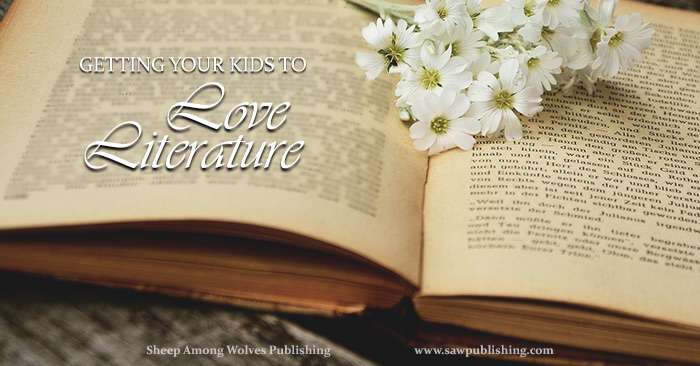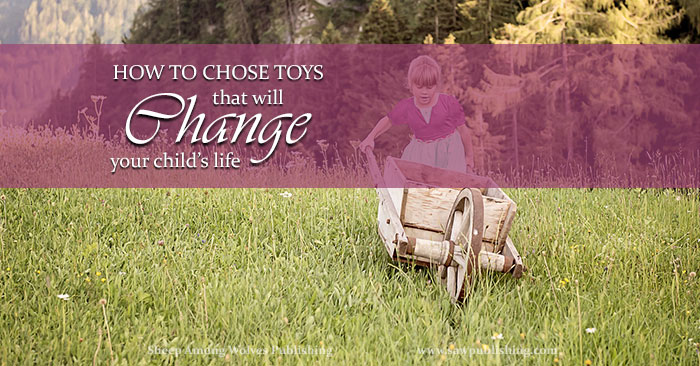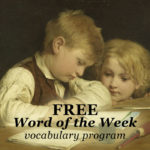How Do You Get Your Kids to Love Literature?
 Fifteen years ago, a first grade student walked into a doctor’s office after her mother, lugging a fat, heavy volume under her arm. The spine of the book was fully three inches across, and the sheer number of pages would have deterred many an adult from perusing its contents.
Fifteen years ago, a first grade student walked into a doctor’s office after her mother, lugging a fat, heavy volume under her arm. The spine of the book was fully three inches across, and the sheer number of pages would have deterred many an adult from perusing its contents.
“She’s not really reading that, right?” the amazed receptionist asked of the mother.
“Oh, no. She’s reading it,” the mother affirmed, probably feeling a twinge of pride at the receptionist’s astonishment.
But in my opinion, the pride could have been directed a little closer to home. The girl could read that fat novel because her parents had felt strongly enough about the value of reading to invest the time necessary to make it possible. The size wasn’t a problem, because she already new what was inside. The vocabulary wasn’t an issue, because her father had read it all to her beforehand.
The fifteen years that have passed since this story took place have transformed that little girl into an adult. Today, no one would be surprised to see her walk into a doctor’s office with a book measuring three inches across the spine. But I think they would be surprised if they knew the full impact of those read-alouds even today.
Literature—Subject or Recreation?
Much of a child’s perspective towards literature will be based on how it is presented to them. When literature is introduced as a fun recreation, not a dry school subject, children are much more inclined not only to read and enjoy it, but also to learn from it.
A genuine love of reading will do far more for your child’s life than any literature course they can take during school hours.
This is not a disparagement of literature courses, but rather an encouragement for simply reading and loving books. Throughout my growing up years, I learned far more from the hours and hours I spent reading and re-enacting fiction than from books I read purely for school.
A child who begins by loving reading will eventually enjoy literature courses, but a child who begins by hating literature courses will probably never love reading.
Choose Books that are Good and Great
As Christians, it is important for us to give our children good books—books that will draw them closer to God, and steer them farther from evil. But in order to encourage a love of literature, we need to give them books which are great also. Children are only going to develop a love for reading if the books they read are stimulating and well-written. Great books make great readers.
The following Sheep Among Wolves book reviews highlight a few books for several different age-ranges, to get you started. Click on the title to read the full review.
Picture Books/Early Readers:
- A Sweet Singer by Marla Martin
- God Is Good Series by Mrs. James Swartzentruber
- The True Princess by Angela Elwell Hunt
Ages 6-11:
- Christie’s Old Organ by Mrs. O.F. Walton
- Gabriel and the Hour Book by Evaleen Stein
- Little King Davie by Nellie Hellis
- The House with Two Grandmothers by Rebecca Martin
- Mary Jones and Her Bible by Mary E. Ropes
Ages 12+:
- A Charge to Keep by Isabella MacDonald Alden
- War Torn Valley by Joyce Miller
- The Courage of Nikolai by Mary E. Ropes
 Read Aloud to Your Children
Read Aloud to Your Children
Reading great books can sometimes be a chicken-and-egg scenario. In order to love great books, a child has to read great books, but, to an extent, in order to read great books a child has to love great books also.
Many children find great books intimidating because their reading and/or vocabulary skills are not strong enough to make the story come easily. In consequence, they end up with indifference or even dislike towards literature.
Reading aloud to a child easily removes this dilemma. The child becomes familiar with new vocabulary, finds interest in the story being read, and will later have no qualms about picking up the same book on their own, because they are already comfortable with the content and language.
Do this often enough, and children cease to be concerned about reading new books and learning new words, because they have a positive connotation with literature and find the process exciting instead of intimidating.
Even in high-school, students will be encouraged to forge ahead into harder language and heavier subject-matter if “family reading time” is still firing their enthusiasm for well-written books.
Give Your Children the Legacy of Literature
So how do you get your kids to love literature? The answer begins with you. Just as the little girl in the illustration above could read material far beyond her supposed age-level because her father read aloud to her, so your children will advance beyond the “average” in their comprehension and love of literature, if you take the initiative we have talked about.
The cost is the level of commitment necessary to lay a solid foundation, but the investment is well worth it.
Don’t worry if you aren’t a genius at reading aloud, or if your vocabulary skills aren’t extraordinary—you can learn as you go. Don’t be ashamed to look up a word you don’t understand or can’t pronounce. If anything, the experience of learning together with Mom and Dad will only increase your child’s fearlessness in encountering new and difficult language.
Give your children the legacy of literature by reading aloud to them books that are good and great, and making reading a recreation not a school subject. You’ll be amazed at what it does for your child and even for yourself.
If you are looking for other ways to lay a positive foundation for your children’s education in non-school hours, please look at the following post:

Looking for a way to choose toys for little ones? Here is a Timeless Tip from the 1840’s for choosing toys that will change your child’s life today.
You might also enjoy:

Not sure where to turn for godly literature? We have found several sources of good books that you might be interested in exploring further.

Are you looking for a fun and easy way to stimulate your child’s vocabulary? Our FREE Word of the Week (WOW) program is the perfect answer.

Are you struggling with uncertainty in your life? Trust in the God Who guides His children safely on the seas of life, and into the harbour of Heaven!
